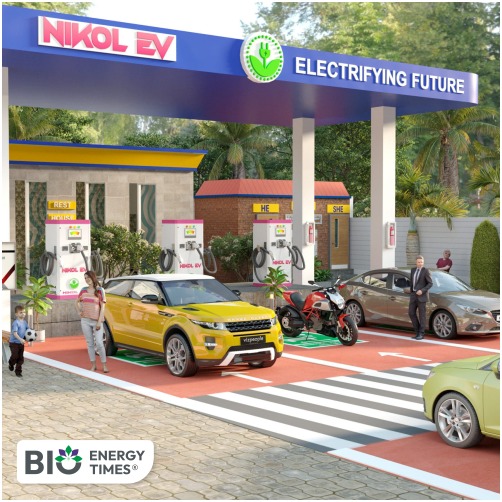In a major step towards promoting sustainable mobility in India, Nikol EV, a prominent provider of electric vehicle (EV) charging solutions, announced plans to expand its charging network for electric small commercial vehicles (SCVs). This initiative aims to make EV charging for commercial vehicles more accessible, convenient, and scalable for a wider customer base.
As part of this effort, Nikol EV has signed a Memorandum of Understanding (MoU) with Tata Motors, the country’s largest commercial vehicle manufacturer and a leader in e-mobility solutions. Together, the companies will establish 1,000 new public charging stations across key cities, including Pune, Mumbai, Bangalore, Panaji, Indore, and Bhopal. These charging stations will be strategically located at major logistics hubs to help fleet operators improve operational efficiency and unlock greater earning potential.
This partnership aligns with Tata Motors’ commitment to electrifying its commercial vehicle portfolio and delivering innovative, zero-emission transport solutions for urban logistics and last-mile delivery.
Arjun D. Pawar, Founder of Nikol EV, expressed enthusiasm about the collaboration: “We are thrilled to work with Tata Motors to accelerate the adoption of electric small commercial vehicles across India. This partnership is a key milestone in creating a robust, accessible charging infrastructure that will empower businesses to transition to cleaner mobility solutions. Our goal is to ensure that EV charging is seamless, reliable, and scalable for commercial fleets.”
The new charging stations will feature fast-charging capabilities and integrated digital solutions, offering efficient energy management and easy access for users. This initiative is in line with India’s broader goals of reducing carbon emissions and promoting electric mobility, particularly in the commercial transport sector.
Building India’s Commercial EV Backbone:
India’s commercial EV market is set to grow at a remarkable 70% compound annual growth rate (CAGR) through 2030, driven by the surge in last-mile delivery, e-commerce logistics, and urban transportation. According to NITI Aayog, over 80% of India’s goods movement relies on small commercial vehicles, highlighting the significant opportunity for expanding the EV charging network in the country.














